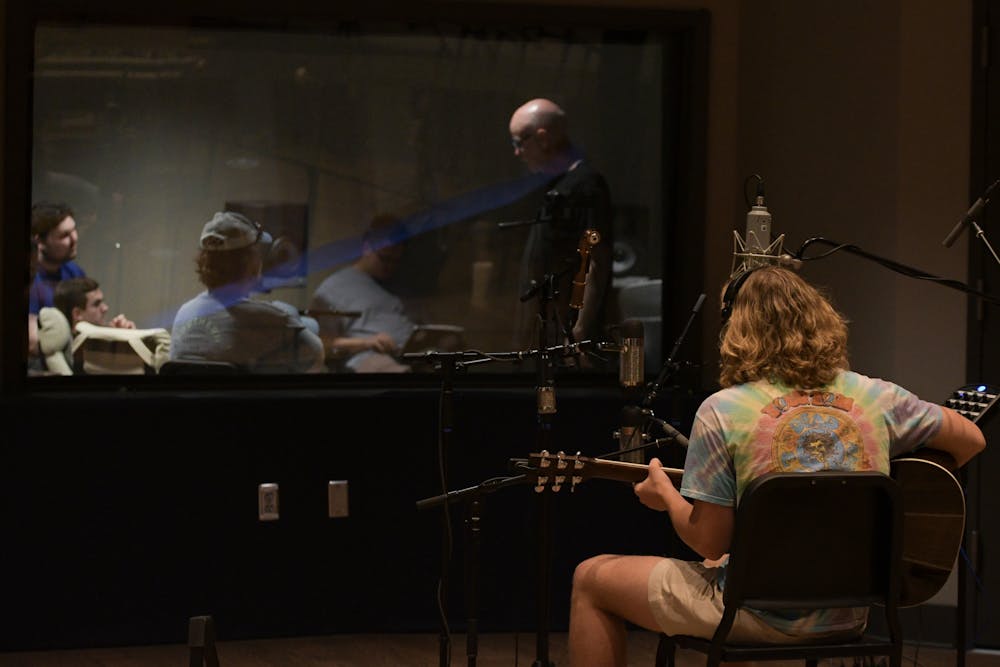This article has been revised to include the most current information.
Auburn University's Department of Music recently established three new programs and is opening a recording studio to allow students more access to expression through music as well as understanding the industry.
The music business minor was established in fall 2023 by Doug Rosener, the chair of the department.
This minor is open to all students who wish to have a profession in the music industry. The courses are designed to dig deep into the multi-billion dollar industry and teach students how to navigate it effectively. To complete the minor, students take 15 hours of music business classes and do not need prior musical knowledge to declare the minor.
The department has also introduced two new music majors, one of which is the commercial music program. This major was established in 2020 also by Rosener but it is overseen by Khari Allen Lee. Lee is a saxophonist, composer and professor of practice that has performed with artists such as Aretha Franklin.
It prepares students for different careers within the music industry. The program includes a study of “commercial” styles – pop, rock, hip hop, R&B and rap– to provide high levels of performance levels with traditional training. The major also incorporates voice, percussion and guitar. An audition is required to enter into this major.
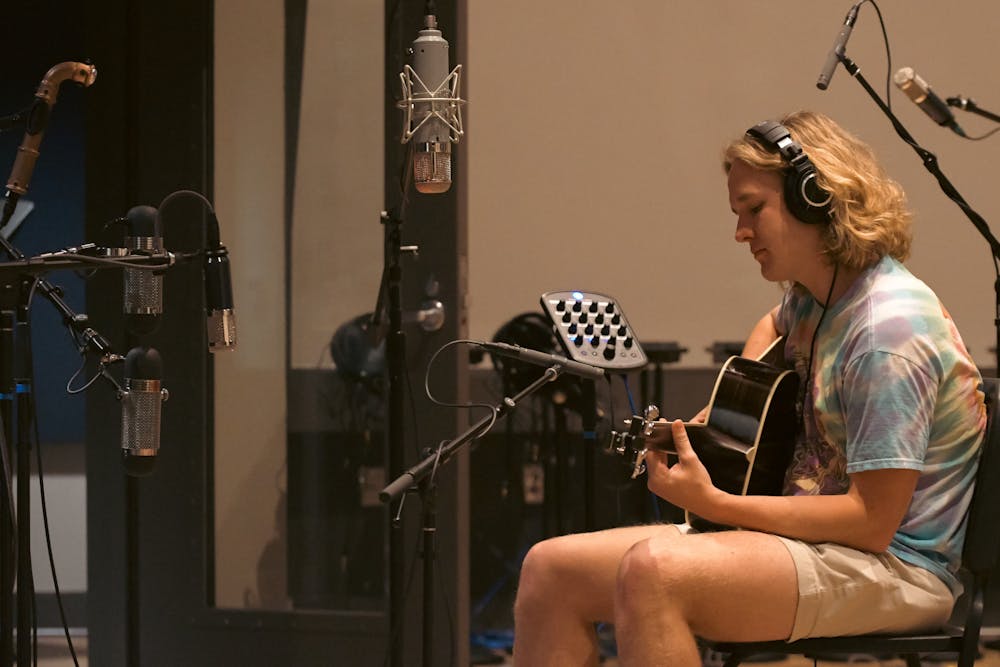
“When we’re talking about ‘commercial music’ we’re talking about [the spectrum] of American popular music,” Lee said. “It also has this music business component that sets them up to be more than a music producer or performer.”
The program combines these commercial styles with the study of music business to allow for optimal career preparation. Students completing this major will be “qualified to pursue careers as preforming artists, seek positions with major music industry-related firms or both.”
Students within these programs would have the opportunity to audition for Auburn’s commercial music ensemble Sonic Nation. The ensemble has four singles released and an EP titled "The Experience," as well as a new EP scheduled for release in August. Sonic Nation was founded in 2020 and is ran by Jilla Webb, a commercial voice professor.
The second program offered is composition with a technology route. This major is overseen by Lee Johnson, who has conducted and recorded music with the London Symphony Orchestra, the Russian National Orchestra, the London Session Orchestra and the Center for Contemporary Music Moscow.
This program was introduced in 2019 for students who would like to compose music for film, television or video games. Students have to audition for this major. Once accepted, they study different compositional processes with different recording studio techniques.The purpose of this major is to allow students to explore composing for a wide range of musical applications in a growing technological world.
“They’re working with digital audio workstations to produce just about anything for media,” Lee said.
Trammell Starks works as a producer and music engineer and has taken charge in overseeing the newly established recording studio. Starks is a keyboardist who has toured with many major artists such as Patti LaBelle and has recorded sessions at Abbey Road Studio with the London Symphony.
“I try to decipher what ‘producer’ means in the real world,” Starks said.
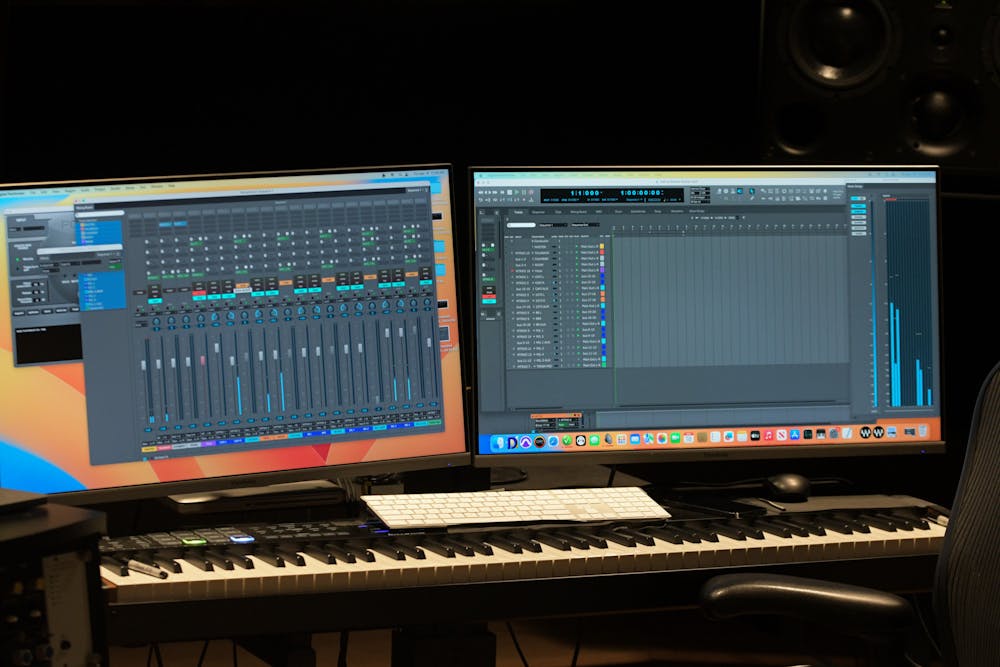
The studio has grabbed the attention of many brands in the music industry, most notably Yamaha who established Auburn University as one of ten colleges in the Yamaha Institution of Excellence program.
According to Starks, students studying music will be able to utilize the "world-class” recording studio in Goodwin Hall. This studio is one of the largest in the nation, just behind studios in Nashville and Los Angeles, and will allow students to gain experience with production, whether it is vocally or instrumentally.
Current students use the studio to engineer their own tracks and learn new techniques. For instance, students use MIDI – musical instrument digital interface – that records data from playing an instrument and adds it to a track.
Starks says that there are three reasons that the studio exists. To “serve as a commercial facility for outside artists, to serve student and faculty needs and the last is to give young people access to the skill sets in these programs."
The studio, which is 4,000 square feet and cost the university $1.3 million to construct, was designed by Steven Durr, who has also designed a studio for popular artists. The studio is not only meant for students but also for faculty and outside commercial artists looking for a place to record.
“People have Garage Band on their phones or whatever, but how do you mic a piano? How do you mic a guitar?” Starks said. “Those kinds of things are what we teach in the studio and in production.”
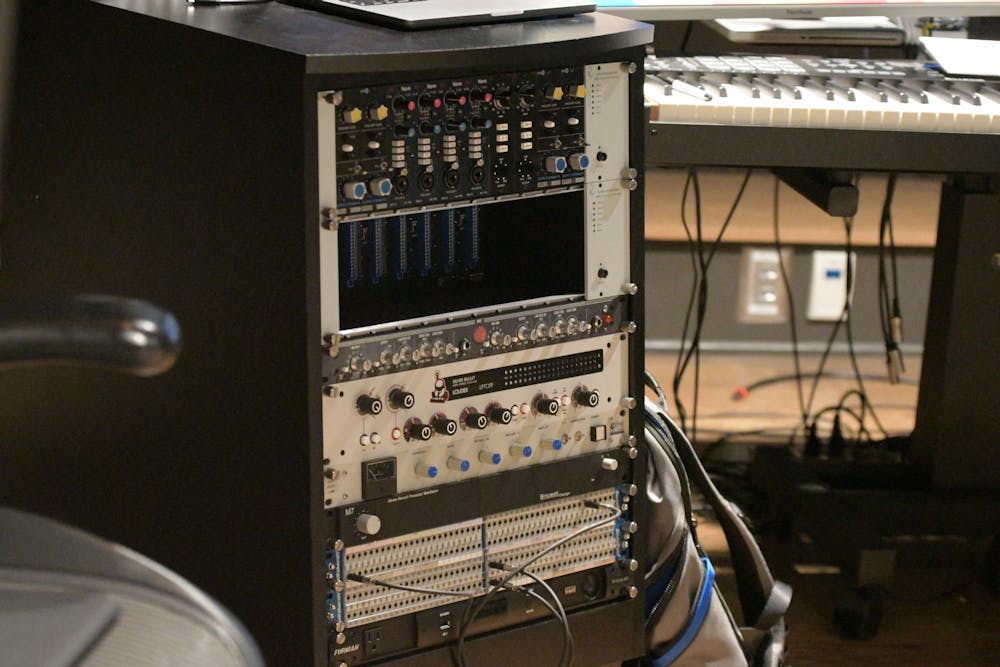
The studio will be one of the 803 music establishments found in Alabama and “has the potential” to attract clientele that match those of the Muscle Shoals Sound Studio. The music industry is advancing in a way that allows music production and recording to be done all on a computer, making the studio at Auburn a “one of a kind” facility.
The studio has already attracted big names in entertainment, one being Asher HaVon, a contestant on NBC’s “The Voice.” HaVon visited March 29, 2024 for season 25 of “The Voice” to record a verse and chorus of “Set Fire to the Rain.” This recording was overseen by three students studying commercial music in the audio engineering class. This recording was apart of B-roll footage.
Do you like this story? The Plainsman doesn't accept money from tuition or student fees, and we don't charge a subscription fee. But you can donate to support The Plainsman.
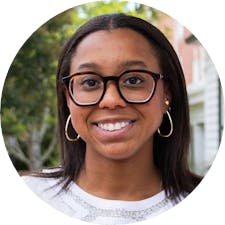
Brychelle Brooks, senior majoring in public and professional writing with a minor in information systems, has been with The Auburn Plainsman since August 2023. She previously served as the Campus Reporter, Opinion Editor and Newsletter Editor. She is currently serving as the Editor-in-Chief.

